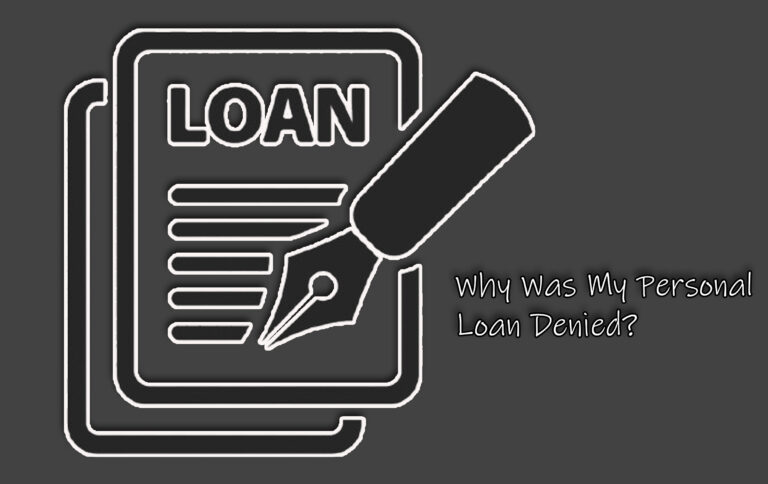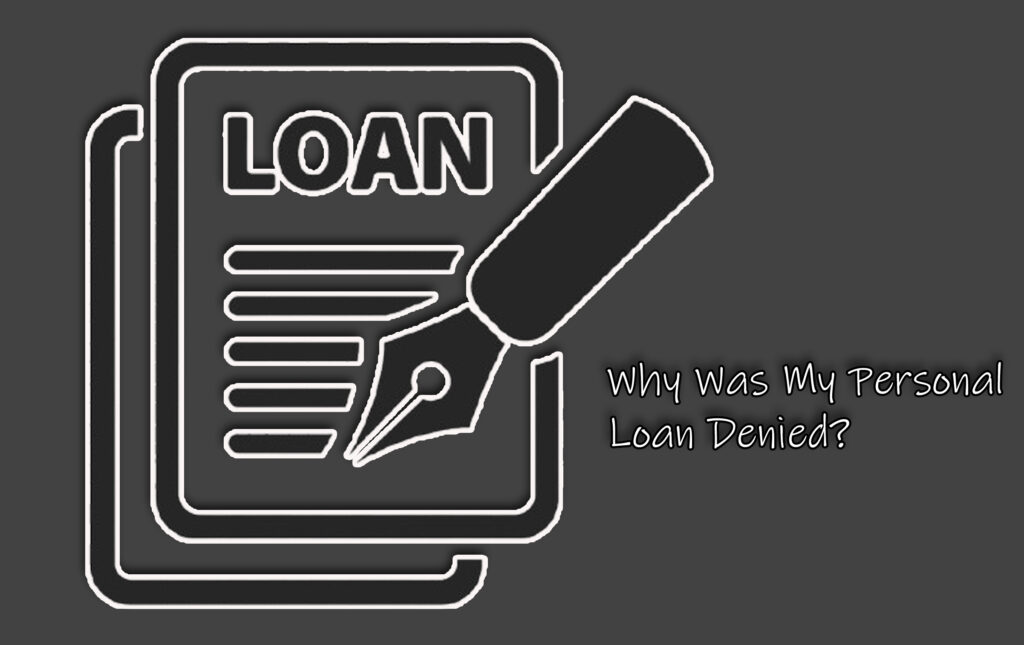
Why Was My Personal Loan Denied? Applying for a personal loan can be a helpful solution when you’re trying to handle financial expenses like consolidating debt, covering medical expenses, and more.

It is usually a straightforward process: All you have is to fill out an application, submit documents, and wait for approval.
However, if you’ve received a denial, it can be both confusing and frustrating. Many applicants assume that qualifying for a personal loan is simply about income, but lenders evaluate several factors before making a decision.
Your personal loan being denied doesn’t mean the end of the road or massive failure. In fact, it’s an opportunity to better understand your financial profile and take actionable steps to improve it.
Lenders use a combination of your credit history, income, debt-to-income ratio, and other criteria to determine your creditworthiness.
Let’s explore the most common reasons personal loan applications are denied and what you can do to strengthen your chances of approval the next time around.
Poor Credit History
One of the leading reasons personal loans are denied is a low credit score or negative credit history. Lenders view your credit report as a form of credential or reflection of your financial behavior, like whether you pay bills on time, carry too much debt, or have past delinquencies.
Some of the common credit-related reasons for denial include:
- Late or missed payments
- Bankruptcy or foreclosure
- Too many recent hard inquiries
- High credit utilization (using too much of your available credit)
- Collections or charge-offs
A credit score below 600 is often considered subprime, which limits your options. To improve your chances, check your credit report for errors, pay off outstanding debts, and build a positive payment history before reapplying.
High Debt-to-Income Ratio
Your debt-to-income ratio is the percentage of your monthly income that goes toward paying existing debts. If this ratio is too high, it suggests you may struggle to manage additional debt. Here are the scenes that lenders are on the lookout for:
- DTI below 36% is ideal
- DTI above 43% is considered high risk
- Rent, car payments, credit card debt, and student loans all count toward DTI
If you’re denied due to high DTI, you might want to consider paying down your current debts or increasing your income before reapplying.
Insufficient Income or Unstable Employment
Even if you have a decent credit score, lenders still want the assurance that you can repay the loan. If your income is too low in relation to the requested loan amount, or if you lack consistent employment, you may be deemed too risky.
Possible income-related concerns include:
- Income below lender minimums
- Irregular or inconsistent income (e.g., gig work or freelance)
- Gaps in employment history
- Lack of verifiable income documents
To boost your chances, apply for a smaller loan amount, provide proof of stable income, or wait until you have more job consistency.
Incomplete Or Inaccurate Application Information
Loan applications require precise, verifiable information. Mistakes or omissions, even the unintentional ones, can cause delays or outright rejections.
Some of the application issues that may lead to denial are:
- Incorrect personal details (e.g., Social Security number, address)
- Mismatched employment or income data
- Bank account mismatches
- Missing documents or inconsistent paperwork
Additionally, you must always double-check your application before submission. Upload all required documents, and make sure your details match your official records and pay stubs.
Too Many Recent Applications or Inquiries
If you’ve applied for multiple loans or lines of credit in a short period, it can negatively affect your credit score and raise red flags for lenders. This behavior may signal financial distress. The red flags that cause denial are:
Red flags from recent activity:
- Multiple hard credit inquiries
- Recent applications for various types of credit (credit cards, auto loans, etc.)
- Short credit history without consistent repayment behavior
To avoid this, limit the number of applications you submit within a short time, and use loan comparison tools that only perform soft credit checks.
Not Meeting the Lender’s Specific Requirements
Each lender has unique underwriting criteria. Some cater to people with excellent credit, while others specialize in subprime borrowers. If you don’t meet a lender’s internal requirements, your application might be denied, even if your overall financial profile is reasonable.
Some of the lender-specific factors might include:
- Minimum credit score or income thresholds
- Employment type or residency status
- Restrictions based on loan purpose
- Geographic limitations (some lenders don’t operate in every state)
If you’ve ever been denied, don’t be discouraged. You can look for lenders that align with your financial situation and borrowing needs.